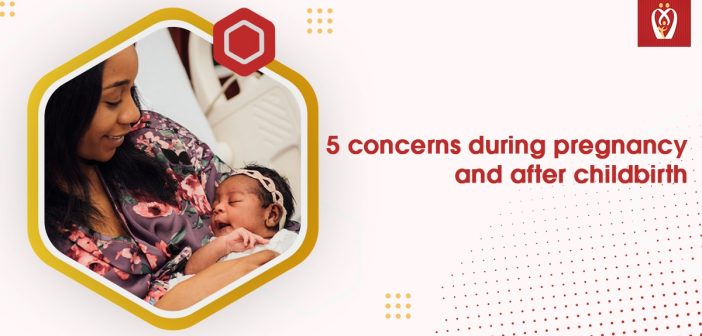After childbirth, you’ll likely be occupied with taking care of the newborn. In the weeks and months that follow, health problems, some of them life-threatening, might arise, and many people are unaware of the warning symptoms.
1. Failure to educate oneself
Perineal pain and uterine contractions are frequent after childbirth, as is exhaustion. To tell the difference between normal healing and signs of a problem, you may not know whether to seek medical attention. The risk of major postpartum problems may not be identified by your health care provider if you give delivery in a hospital.
After childbirth, many women don’t see a health care provider for at least four to six weeks. This is likely due to financial constraints. Many new mothers are left to fend for themselves when it comes to their postpartum recovery.
2. Gestational Diabetes
Women are more likely to develop GDM – gestational diabetes mellitus during pregnancy. Macrosomia, or an abnormally huge infant, is one of the most serious complications of gestational diabetes. Obesity and a prior history of gestational diabetes mellitus (GDM) are both risk factors for developing gestational diabetes. During the first trimester, if you are at high risk, your GP may perform a GDM screening earlier than 24 weeks. This can cause major problems after childbirth.
It is important that you and your GP discuss how you can regulate your GDM. An easy place to start is with the tried-and-true methods of nutrition and exercise. Diabetes during pregnancy can be controlled by following a healthy diet. Women with GDM may still require medication (pills or perhaps insulin) to keep their blood sugar levels stable.
3. Placenta Previa
The placenta gives your kid oxygen and nourishment in the womb, ensuring appropriate development. Placenta previa occurs when the placenta completely or partially covers the cervix during pregnancy (which is the opening between the uterus and vagina).
The primary symptom is vaginal bleeding without cramps or other pain. Some ladies, on the other hand, don’t show any signs. An ultrasound or a physical exam will help your GP confirm the diagnosis.
In order to avoid placenta previa, there is nothing you can do. Regular prenatal care, on the other hand, can improve the health of both you and your unborn child leading to a healthy childbirth. Make sure to tell your GP if you’ve had previous surgery, a C-section, or fibroids. They might want to keep an eye on you a little more attentively while you’re pregnant.
4. Preeclampsia
Preeclampsia is a severely high blood pressure disorder that occurs during pregnancy. If left untreated, it can be fatal. Most preeclampsia cases occur after the 20th week of pregnancy in women without a prior history of high blood pressure. Preeclampsia or just high blood pressure will be diagnosed based on the results of tests such as those for kidney and liver function. Preeclampsia cannot be prevented, however, maintaining a healthy lifestyle helps lessen its effects. In order to discuss measures to lower your risk of pregnancy complications, it is recommended that you meet with your obstetrician either before or soon after you become pregnant.
5. Excessive Pregnancy Vomiting
Although morning sickness and other pregnancy discomforts are common for many women, those who suffer from hyperemesis gravidarum (HG) have nausea and vomiting 1,000 times worse. H.G. is a severe form of nausea that can lead to significant weight loss and even hospitalisation.
However, you can control and manage the symptoms of HG throughout pregnancy. To ensure the health of both you and your unborn child, it is critical that you receive regular prenatal care. Because of this, both you and your unborn child may suffer nutritional deficiencies as a result of HG. However, if treated properly, neither the mother nor the kid will suffer long-term consequences as a result of the pregnancy.
You may have noticed a similar thread in all of these conditions: Prenatal (and even preconception) care is absolutely essential. During a preconception consultation, you must discuss ways to lessen the risks that can lead to fatal childbirth. The best thing you can do for your baby is to be healthy before you get pregnant.
Nurturey Pink Book application has some of the finest tools to help you track your pregnancy, maintain your health and also set in reminders! Download the Nurturey Pink Book app now!




